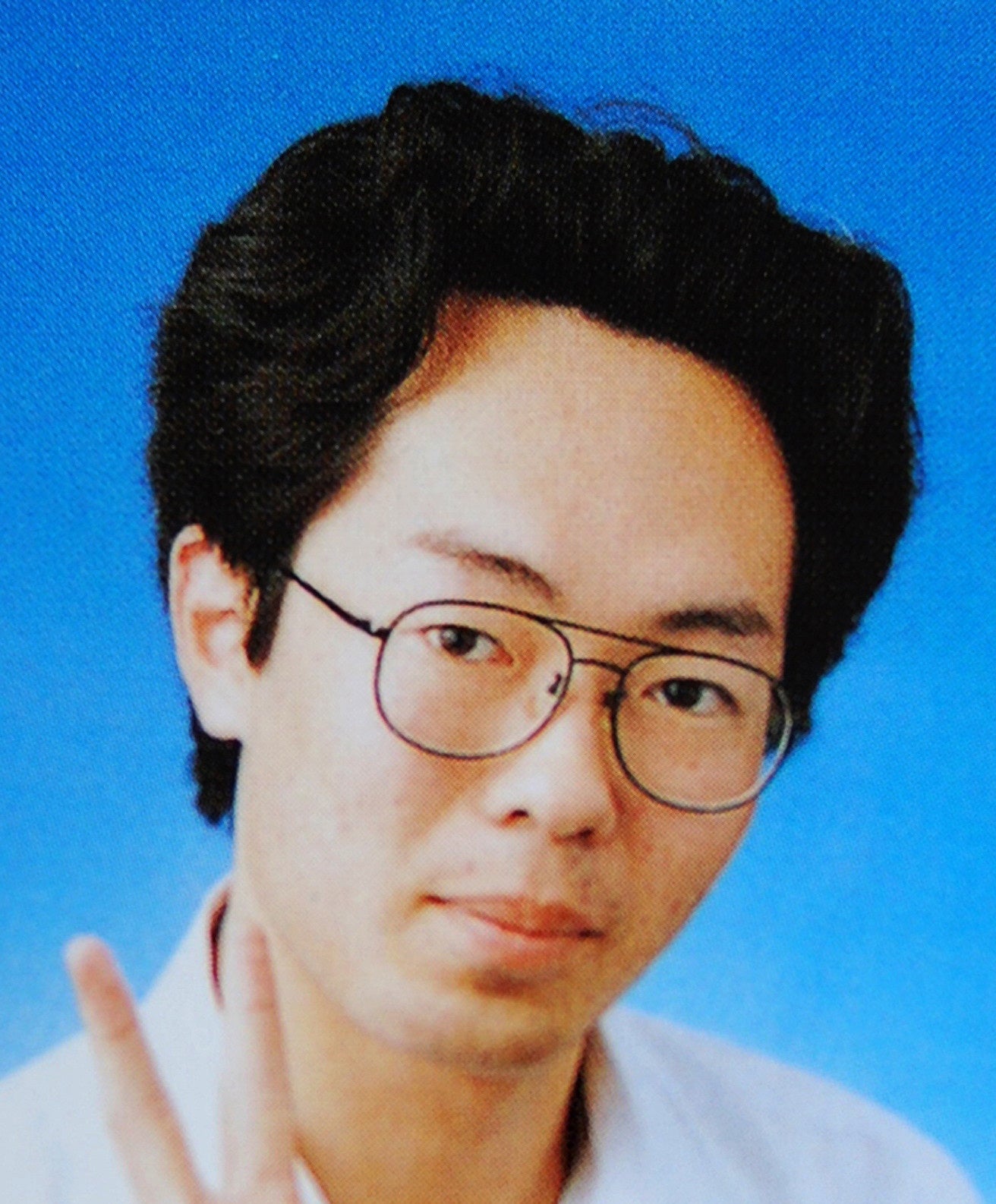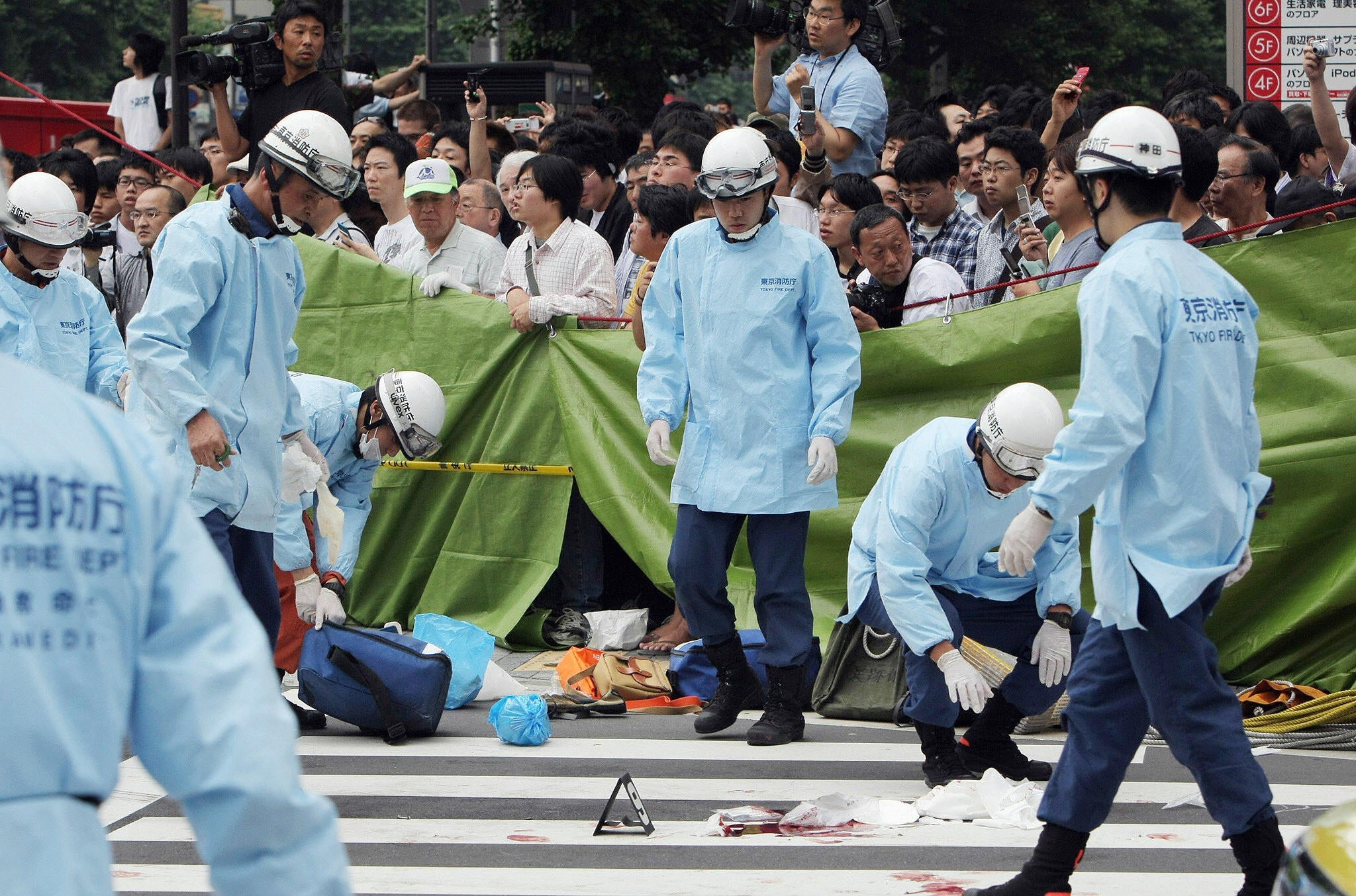Man executed in Japan over stabbing rampage in Tokyo
Justice minister defends death penalty after first hanging of a prisoner this year

Japan has executed a man who killed seven people in a lorry attack and stabbing rampage in Tokyo 14 years ago.
Tomohiro Kato was hanged at the Tokyo detention centre on Tuesday, Japan’s justice minister Yoshihisi Furukawa said.
Addressing growing international criticism of Japan’s use of capital punishment, Mr Furukawa said the practice was justified in response to heinous and violent crime and scrapping it was not appropriate at this point.
He said Kato had thoroughly prepared to commit the mass killing that “left an extremely serious impact and shocked the community”.
On June 2008 Kato drove his lorry down a street in the Akihabara shopping area, slamming into a crowd of people and killing three pedestrians. He then got out of the vehicle and stabbed four people to death. He injured or wounded 10 others.
Surveillance footage showed him buying hunting knives two days before the attack, laughing with a store worker and at times making stabbing motions with his hands. He had also reportedly posted several warnings on internet message boards that he was planning mass murder.

Kato, 39, was sentenced to death in 2011 by the Tokyo District Court and the Supreme Court rejected his appeal in 2015, saying the killings were clearly premeditated.
Mr Furukawa denied Kato was made an example of in response to the fatal shooting of former prime minister Shinzo Abe earlier this month, which shocked the nation known for strict gun controls and low crime rates.
Tuesday’s hanging was the first since three men were executed in December.
It was the second time Mr Furukawa had signed death warrants since taking over as justice minister in October when Japan formed a new government under Liberal Democratic Party leader Fumio Kishida.
Japan now has 107 people on death row, including 61 seeking retrials, Mr Furukawa said. In 2018, Japan hanged 15 people.
Executions are carried out in high secrecy in Japan and prisoners are not informed of their fate until the morning they are hanged.

Japan and the US are the only two countries in the OECD that retain capital punishment. A survey by the Japanese government showed around 80 per cent of the public supports executions, compared with independent US surveys showing 60 per cent support.
In Britain, where capital punishment effectively ended in the 1960s, a recent poll found public support at 40 per cent.
Though public support for the death penalty is extremely high in Japan, lawyers are opposed to the practice due to concerns over the miscarriage of justice. In 2020, the Japanese Federation of Bar Associations called for abolition.
Internationally, the European Union and human rights groups have called for Japan to end the practice.






Join our commenting forum
Join thought-provoking conversations, follow other Independent readers and see their replies
Comments